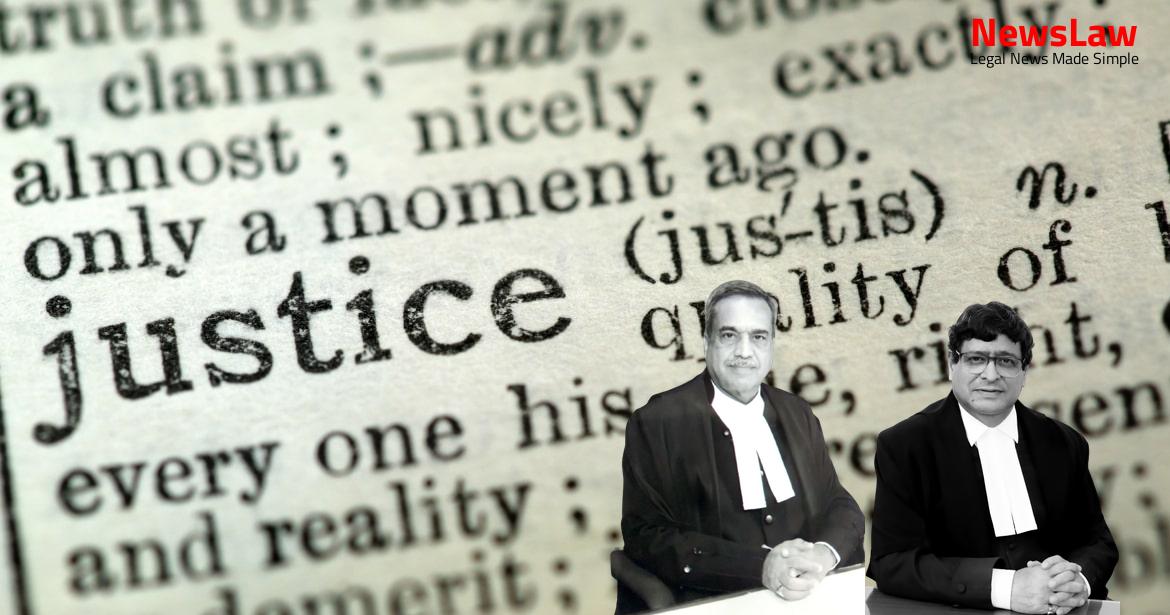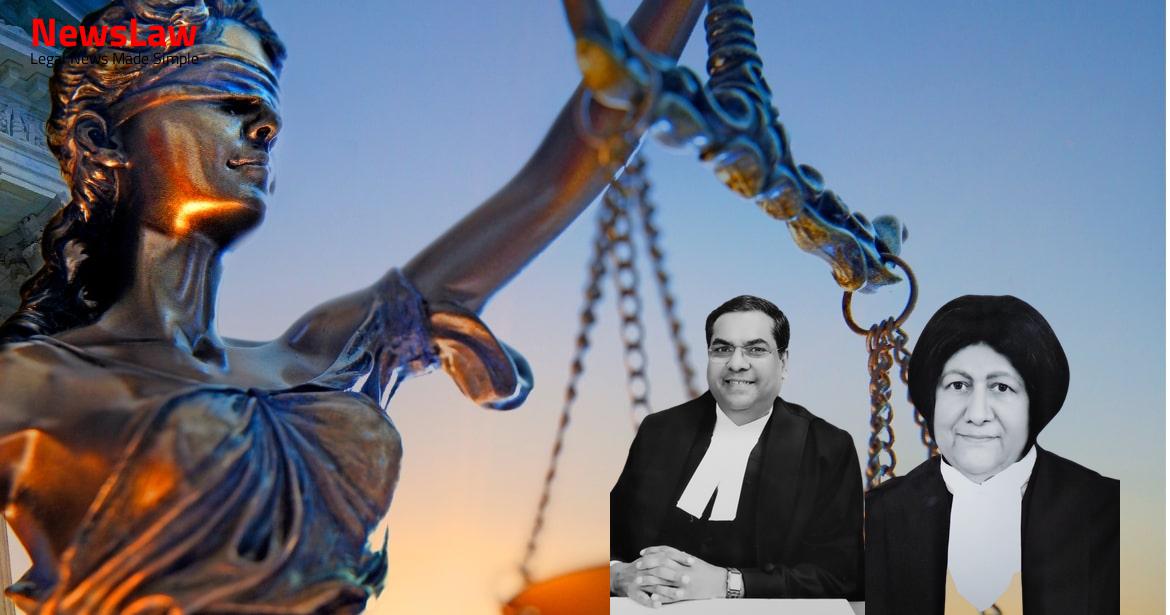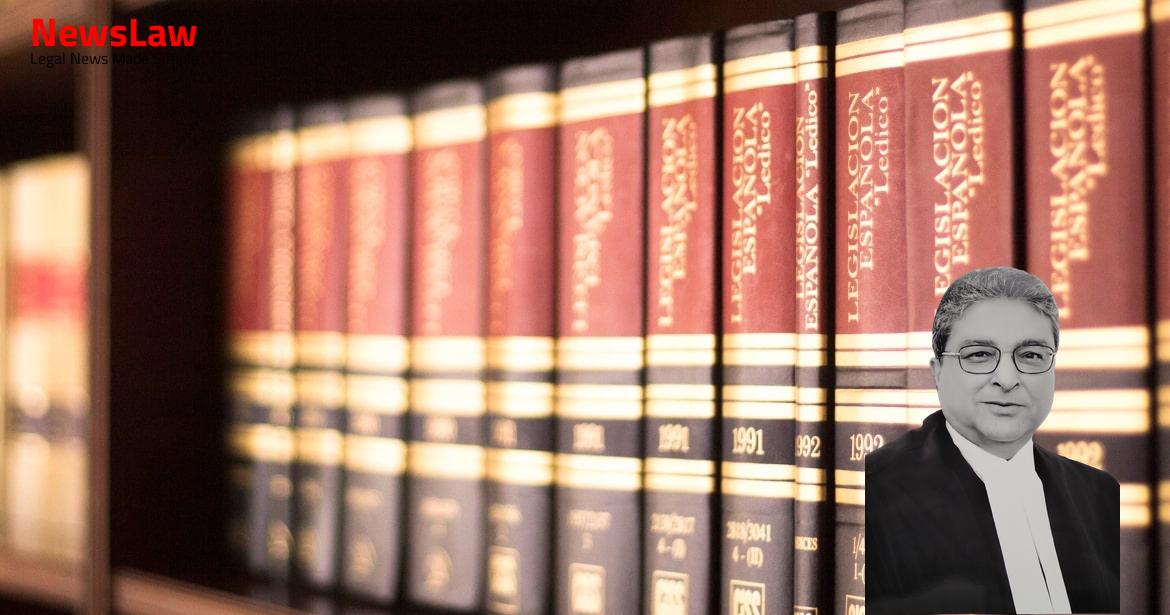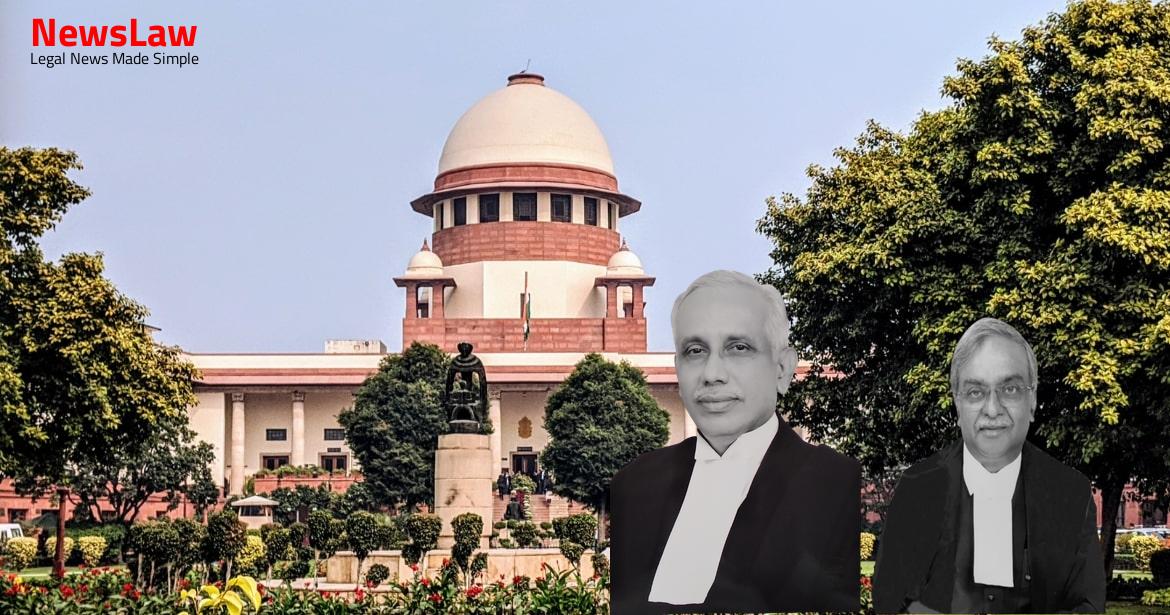Explore the intricacies of legal analysis in negotiable instrument cases, focusing on burden of proof and challenging legal presumptions. The court’s in-depth examination of evidence and application of legal principles sheds light on the complexities of proving the execution of promissory notes. Follow along to delve into the nuances of the law and understand how legal presumptions can be rebutted in such cases.
Facts
- Original plaintiff filed suit for recovery of Rs. 1 lakh against original defendant.
- Trial Court decreed the suit based on belief in execution of pro-note by defendant in favor of plaintiff.
- First Appellate Court dismissed defendant’s appeal.
- High Court allowed defendant’s appeal under Section 100 of CPC, setting aside lower court decrees based on lack of attesting witness for the pro-note.
- The defendant denied the execution of pro-note and claimed no loan was taken.
- Plaintiff’s witnesses included Kapil Kumar, Yashpal Chand, Satish Kumar, and Sat Narian.
- Defendant’s witnesses were Dinesh Kumar, Raj Kumar, and Phool Singh.
- Plaintiff alleged the defendant borrowed Rs. 1 lakh on 29.06.2007 and executed a promissory note and receipt.
Also Read: Legal Analysis of Admission Irregularities in Educational Institutions
Arguments
- The findings on facts by both courts below were based on the execution of pro-note by the defendant in favor of the plaintiff, supported by the testimony of PW3.
- The deposition of PW3, the deed writer, confirms the defendant’s admission of receiving the money in question.
- The execution of the pro-note and the consideration mentioned in it have been established through the testimonies of PW1, PW3, and the handwriting expert PW2.
- Appellant argues that the burden of proof lies with the plaintiff as per legal precedents and the plaintiff has successfully proven the execution of the pro-note.
- The High Court’s decision to quash the lower courts’ judgment based on the execution of the pro-note is strongly contested by the original plaintiff.
- In cases involving negotiable instruments, withholding relevant evidence may lead to adverse inferences and the presumption can be rebutted based on preponderance of probabilities.
- Non-examination of a witness to the promissory note is considered fatal to the plaintiff’s case.
- In the present case, the presumption under Section 118 of the Negotiable Instruments Act will not be attracted as the execution of the promissory note has not been proven.
Also Read: Quashing of Enhanced Tuition Fee in Private Medical Colleges
Analysis
- The High Court erred in upsetting the findings of facts recorded by the Trial Court and the First Appellate Court regarding the execution of the pro-note by the defendant in favor of the plaintiff.
- The signature of the defendant on the pro-note was proven by the plaintiff through a handwriting expert, and no contrary evidence was presented by the defendant.
- The concurrent findings of facts by the Trial Court and the First Appellate Court should not have been interfered with unless found to be perverse.
- No specific substantial question of law was framed by the High Court, which mainly considered the proof of execution of the pro-note and the receipt through cogent evidence.
- Minor contradictions in the depositions of witnesses regarding the consideration mentioned in the pro-note did not undermine the overall evidence.
- Non-examination of a witness to the pro-note cannot be held against the plaintiff as the execution was established through other evidence.
- The impugned judgment and order passed by the High Court is unsustainable on law and facts and is quashed and set aside.
- No rebuttal evidence was led by the defendant.
- The High Court erred in allowing the second appeal and setting aside the decree passed by the Trial Court and the First Appellate Court.
- Section 118 of the NI Act establishes a presumption of consideration in negotiable instruments.
- This presumption can be rebutted.
Also Read: Final Decision and Disclosure in Collegium Meetings
Decision
- The present appeal is allowed
- The judgment and decree of the Trial Court decreeing the suit are confirmed
- The decision of the First Appellate Court is restored
- No costs are awarded
Case Title: KAPIL KUMAR Vs. RAJ KUMAR (2022 INSC 1094)
Case Number: C.A. No.-005854-005854 / 2022



